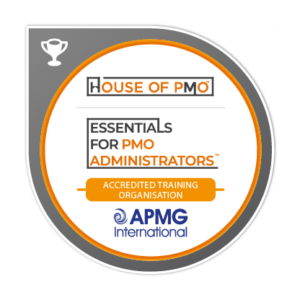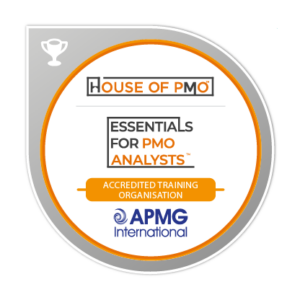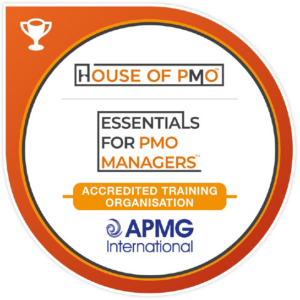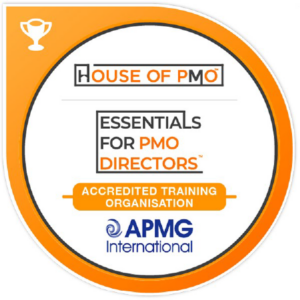
The Lean-Agile PMO course from PMO Learning has been a really popular one over the last few years and as Agile approaches to project delivery become ever more prevalent, the PMO has been picking up new skills to support those projects.
 The Lean-Agile PMO course is a good one for getting to grips with understanding how the PMO role and services change slightly to accommodate the Agile approaches. The additional course, about Agile Frameworks, is also useful when trying to understand the organisation’s – or Agile-at-scale – capability is for managing many projects and practising more agility – you’ve probably heard of SAFe for example.
The Lean-Agile PMO course is a good one for getting to grips with understanding how the PMO role and services change slightly to accommodate the Agile approaches. The additional course, about Agile Frameworks, is also useful when trying to understand the organisation’s – or Agile-at-scale – capability is for managing many projects and practising more agility – you’ve probably heard of SAFe for example.
The PMO practitioner has had to get to grips with SCRUM and some of the artefacts and ceremonies that exist – it’s been necessary because the PMO has to support projects and teams, that’s the job right?
Burndown charts, cadence, velocity, backlog cleansing, servant leadership, spikes, stories – the list goes on.
One of the areas that PMO practitioners have picked up is assisting in the creation, development and running of retrospectives.
The PMO’s Guide to Effective Retrospectives
 PMO Learning has a half-day course which is focused on building the practical knowledge and skills required to create great retrospectives. The PMO’s Guide to Effective Retrospectives is a focused course designed to equip you with the skills you need.
PMO Learning has a half-day course which is focused on building the practical knowledge and skills required to create great retrospectives. The PMO’s Guide to Effective Retrospectives is a focused course designed to equip you with the skills you need.
What are Retrospectives?
I love this definition, “retrospectives are special meetings where the team gathers after completing an increment of work to inspect and adapt their methods and teamwork“.
Often likened to ‘lessons learnt’ or ‘post-project reviews’, retrospectives are happening frequently throughout the project and focus not just on the work being completed but also the team itself.
Within the SCRUM approach, there is something called the ‘adapt and inspect’ part of the cycle – and the retrospective is the main way of enabling the team to do that.
With retrospectives, there are a number of different structures or approaches which are designed to get the most out of the meeting.
It’s about designing an approach that allows people to speak openly and freely about, what can often be, difficult conversations.
Setting the right purpose, focus and time is crucial.
Devising different activities to draw out people and keep them engaged and contributing is imperative.
The PMO skill in retrospectives combines creativity in devising activities; facilitation in carrying out inclusive meetings; and co-ordination to help embed changes as a result of retrospective outcomes.
Who is the Course Aimed at?
The course is aimed at those PMO practitioners working in an Agile or hybrid approach to delivering projects who are looking to increase their knowledge around retrospectives.
It could be that you’re working closely with a Project Manager or Agile Coach and want to increase the effectiveness of how you support them.
Or perhaps you’re responsible for ensuring best practices are disseminated across the delivery organisation – like a strand of facilitation for example.
Or as a PMO leader, you want to use the retrospective approach to drive the PMO team’s performance.
Find Out More
Take a look at the course overview – PMO’s Guide to Effective Retrospectives – the course has two parts – both 90 minutes each and is delivered via PMO Learning’s virtual classroom with a live instructor.
Enjoying Our Blog?
Sign up and receive all our articles (we’ll send you an update once a week!) plus special offers and events:













